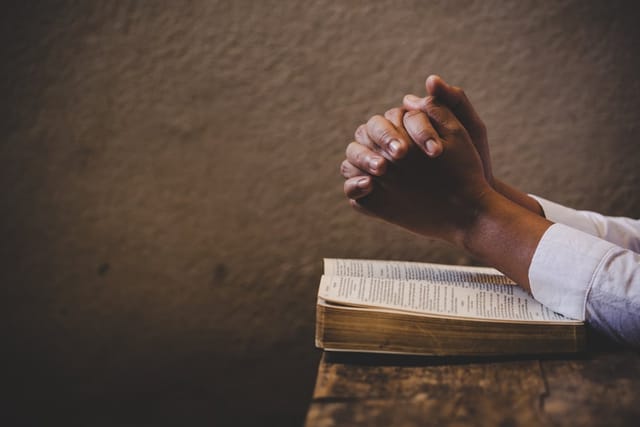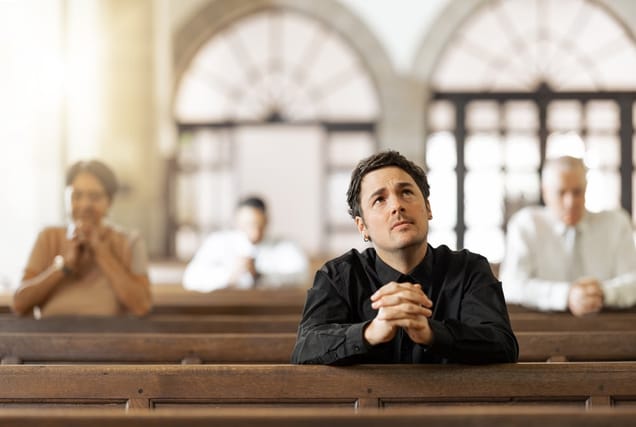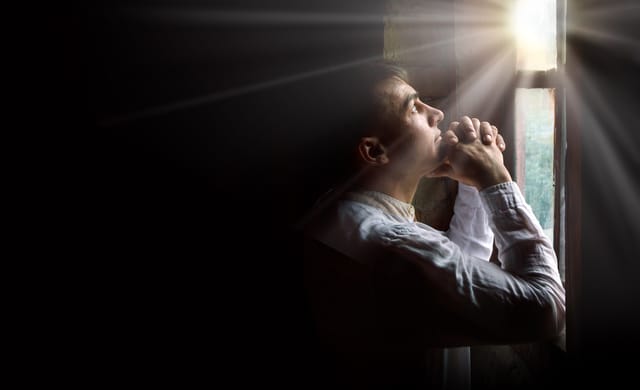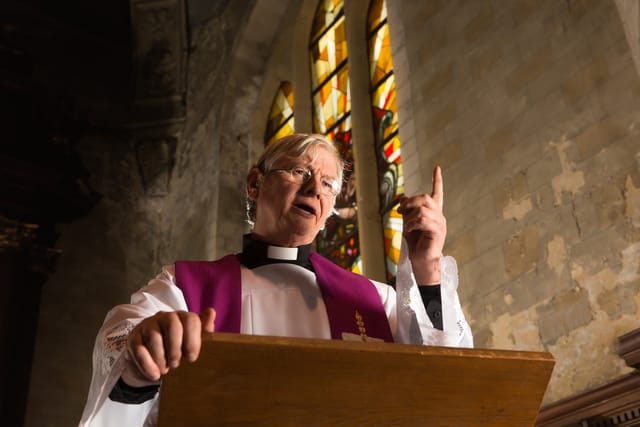Is religion falling out of favor?
 Shutterstock
Shutterstock
Remember those Sunday school mornings, or Friday night temple services? For many, religion was a cornerstone of growing up. But these days, a growing number of people are opting out altogether, according to data from Pew Research Center. Is it changing values, disillusionment, or something else entirely? Here are some frank reasons why people are ditching organized religion.
You may also like: People Who Had Unhappy Childhoods Usually Develop These Traits
1. Hypocrisy and scandals

Let’s face it, religious institutions are not immune to scandal and hypocrisy. From sexual abuse scandals to financial impropriety, many people have lost faith in religious leaders who preach one thing and practice another. When those in positions of spiritual authority fail to live up to the values they espouse, it’s no wonder that people become disillusioned and skeptical of the entire institution.
Don’t miss out – follow Bolde for exclusive content daily
2. Intolerance and judgment

For many people, religion has become synonymous with intolerance and judgment, The Guardian reveals. Too often, religious communities are quick to condemn those who don’t fit into their narrow definition of morality or acceptability. Whether it’s discrimination against LGBTQIA+ individuals, women, or people of other faiths, religious intolerance has driven many people away from the church, mosque, or temple.
You may also like: How A Narcissist Acts When You Start Seeing Through Their BS
3. Outdated dogma and doctrine

Many religious traditions are based on ancient texts and teachings that can seem woefully out of touch with modern realities. From prohibitions on contraception to strict gender roles, some religious doctrines simply don’t align with the values and needs of contemporary society. As people become more educated and exposed to diverse perspectives, they may find it harder to accept religious teachings that seem inflexible or irrelevant.
Don’t miss out – follow Bolde for exclusive content daily
4. Science and reason

As scientific knowledge has advanced, many people have found it increasingly difficult to reconcile religious beliefs with empirical evidence. From the theory of evolution to the Big Bang, scientific discoveries have challenged traditional religious narratives and raised questions about the literal truth of sacred texts. For some, the cognitive dissonance between faith and reason becomes too great to bear.
You may also like: 15 Things To Keep To Yourself Because They’re Nobody’s Business But Yours
5. Personal trauma and abuse
Sadly, many people have experienced trauma or abuse at the hands of religious leaders or communities. Whether it’s physical, sexual, or emotional abuse, these experiences can shatter a person’s faith and trust in religious institutions. The betrayal of sacred trust and the failure of religious authorities to protect the vulnerable have driven countless people away from religion altogether.
Don’t miss out – follow Bolde for exclusive content daily
6. Lack of authenticity and relevance

For some people, religion simply feels inauthentic or irrelevant to their lives. The rituals, prayers, and teachings may seem hollow or disconnected from their daily struggles and concerns. If religion doesn’t speak to a person’s deepest needs and questions, it’s understandable that they would seek meaning and purpose elsewhere.
You may also like: How A Narcissist Acts When They Can’t Fool You Anymore
7. Exclusivity and elitism

Some religious communities can be exclusive or elitist, Psychology Today explains, making newcomers or outsiders feel unwelcome or inferior. Whether it’s a cliquish church social scene or a holier-than-thou attitude, this kind of exclusivity can be off-putting and alienating. People want to feel accepted and valued for who they are, not judged or excluded based on arbitrary criteria.
Don’t miss out – follow Bolde for exclusive content daily
8. Patriarchy and gender inequality

Many religious traditions have a long history of patriarchy and gender inequality, with women relegated to subordinate roles and denied leadership positions. For people who believe in gender equality and women’s rights, this can be a dealbreaker. The idea that God would create half of humanity as inferior or subservient to the other half simply doesn’t align with modern values of fairness and justice.
You may also like: 16 Signs You Didn’t Get Enough Affection As A Child
9. Lack of critical thinking and questioning

Some religious communities discourage critical thinking and questioning, instead demanding blind obedience and unquestioning faith. For people who value intellectual curiosity and independent thought, this can be stifling and oppressive. The idea that certain questions are off-limits or that doubts are sinful can drive away those who want to explore and examine their beliefs.
Don’t miss out – follow Bolde for exclusive content daily
10. Political entanglement and partisanship

In recent years, many religious institutions have become increasingly entangled with partisan politics, aligning themselves with specific candidates or parties. For people who believe in the separation of church and state, or who disagree with the political positions of their religious leaders, this can be a major turnoff. The politicization of religion can make it feel more like a tool for power and control than a source of spiritual guidance and comfort.
You may also like: 18 Personality Traits Of An Unhappily Married Man
11. Emphasis on guilt and shame

Some religious traditions place a heavy emphasis on guilt and shame, constantly reminding people of their sinfulness and unworthiness. While the message of redemption and forgiveness can be powerful, an overemphasis on guilt can be psychologically damaging and lead to feelings of low self-worth. For people who have struggled with shame or self-loathing, a religion that reinforces those feelings may not be a healthy or healing path.
Don’t miss out – follow Bolde for exclusive content daily
12. Lack of diversity and inclusivity

Many religious communities can be homogeneous and lacking in diversity, both in terms of race, ethnicity, and social background. For people who value multiculturalism and inclusivity, this lack of diversity can feel stifling or unwelcoming. A community that doesn’t reflect the broader diversity of society may not feel relevant or relatable to those who come from different backgrounds or experiences.
You may also like: Don’t Share These 15 Things With Anyone – They’re Nobody’s Business But Yours
13. Fear-based teachings and hellfire preaching

Some religious leaders use fear-based teachings and hellfire preaching to control and manipulate their followers. The threat of eternal damnation or divine punishment can be psychologically damaging and create a climate of anxiety and terror. For people who have experienced religious trauma or who simply reject the idea of a vengeful, punitive God, this kind of fear-mongering can be a major turnoff.
Don’t miss out – follow Bolde for exclusive content daily
14. Lack of personal autonomy and agency

Some religious traditions emphasize obedience and submission to authority, leaving little room for personal autonomy or agency. For people who value independence and self-determination, the idea of surrendering one’s will to a higher power or religious leader can feel oppressive or infantilizing. A religion that doesn’t respect individual choice and freedom may not be a good fit for those who want to chart their own course in life.
You may also like: Things Narcissists Say To Shut You Down When You Confront Them
15. Historical atrocities and abuses

Throughout history, religious institutions have been responsible for countless atrocities and abuses, from the Crusades and the Inquisition to the genocide of indigenous peoples. For people who are aware of this dark history, it can be difficult to separate the teachings of a religion from the actions of its followers. The legacy of violence, oppression, and colonialism carried out in the name of religion can be a major barrier to faith for many people.
Don’t miss out – follow Bolde for exclusive content daily
16. Incompatibility with modern values and lifestyles
 Shutterstock
Shutterstock
For some people, religious teachings and practices simply don’t align with their modern values and lifestyles. Whether it’s the prohibition of same-sex relationships, the rejection of contraception, or the adherence to strict gender roles, some religious doctrines can feel out of step with contemporary society. As people’s values and priorities evolve, they may find that their religious tradition no longer speaks to their deepest held beliefs and convictions.
You may also like: 15 Types Of People You Should Never Trust In Life
17. Personal growth and evolution

Finally, for some people, leaving religion is simply a natural part of their personal growth and evolution. As they learn and grow and change over time, they may find that their spiritual needs and questions are better met outside of traditional religious frameworks. Whether they turn to philosophy, psychology, art, or nature for meaning and purpose, they may find that a life without religion is more authentic and fulfilling for them.
Enjoy this piece? Give it a like and follow Bolde on MSN for more!




